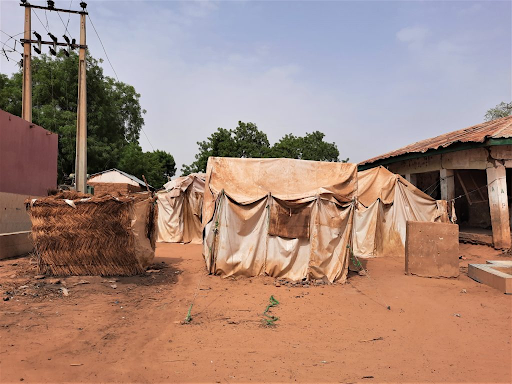Humanitarian Needs In Nigeria’s Northwest Remain Largely Unaddressed, Survey Shows
Of the 11,090 affected families assessed by REACH Initiative, only 10 per cent admittedly received aid. This leaves a large population of people still in dire need.

Ninety-eight per cent of displaced and non-displaced families assessed across Zamfara, Sokoto, and Katsina states in northwest Nigeria are facing adverse forms of humanitarian crises due to conflict, climate change, and poverty.
However, only 10 per cent of those have received assistance, according to a survey conducted by REACH, a humanitarian initiative that provides data on crisis and displacement.
The survey also revealed that displaced families were more likely to get assistance from the states’ governments or local Non-Governmental Organisations (NGOs). Others that have not received aid in the six months prior to the survey have resorted to begging in host communities.
Survey breakdown
Between March and July 2022, REACH assessed 11,090 households in 1,335 settlements across 71 Local Government Areas (LGAs) of the three states. In the survey, food, cash and shelter were the common needs of those affected, and 98 per cent of households also wanted information from assistance providers.
The types of information varied from how to get food (56 per cent), how to register for assistance (46 per cent), how to get water (37 per cent), general information including on security (36 per cent) and how to get medical help (30 per cent).
In the six months prior to the survey, the report noted that only 15 per cent of respondents were asked what type of assistance they would like to receive. Seventy-nine per cent also preferred to be face-to-face at home with assistance providers.
Moreover, the majority of those who received some type of aid said they and other community members do not know where to submit feedback on the quality, quantity, and suitability of what they received.
Humanitarian crises in the northwest
For the past decade, disputes between farmers and pastoralists have gradually turned into a bloodthirsty war between communities in the region. According to ACLED, 709 people were reportedly killed from Dec. 2022 to February, making it the most dangerous region in the country.
It is estimated that over 450,000 people have now been displaced by the conflict in Zamfara, Katsina, and Sokoto states.
However, the absence of official displacement camps has contributed to the humanitarian crisis in the region.
Inadequate shelters have pushed many displaced people to live in host communities where they do not have access to food, potable water, and other non-food items. It has also worsened the rise of diseases.
Nondisplaced families have also been adversely affected, especially with more farmers losing their source of livelihood due to fear of being killed or abducted while working on their farmlands. Many have also been thrown to unprecedented levels of food insecurity.
In Sept. 2022, Medecins Sans Frontieres/Doctors Without Borders (MSF), stated that the region is witnessing acute levels of malnutrition in children describing it as an indicator of a critical emergency.
“Due to the constant displacement, there has been an enormous increase in malnutrition. Despite cases of malnutrition increasing globally, the Northwest is witnessing the tip of the iceberg,” Froukje Pelsma, MSF head of mission in Nigeria, said.
A nutrition survey carried out by the MSF also revealed that the food crisis is severe even in relatively safer areas. For instance, in Katsina, 27.4 per cent of moderate acute malnutrition and 7.1 per cent of severe acute malnutrition was recorded in June 2022.
Outbreaks of bacterial diseases have also been recorded in the region due to the living conditions of those affected by the conflict. In Feb. a little-known yet deadly face-eating disease known as Noma Disease was spreading across the region.
Noma, which is a gangrenous facial infection, is caused by a bacteria that affects the gums and mouth, spreading rapidly in a way that destroys facial tissues, including bones.
One of the known causes is also malnutrition, and it heavily burdens people living in abject poverty in the northwest region. According to an MSF official, 120 – 150 people are infected in a year, and these figures are widely underestimated.
With needs going largely unaddressed, the survey added that “communities are likely to feel neglect, and trust between affected populations and assistance providers may suffer under this strain.”
While urging for a humanitarian scale-up in the region, the report recommended that “any response scaleup in the future should endeavour to prioritise accountability to affected persons [AAP] efforts, to ensure that gaining the trust of communities and enabling them to influence decision-making is a cornerstone of any coordinated humanitarian response in Northwest Nigeria.”
Support Our Journalism
There are millions of ordinary people affected by conflict in Africa whose stories are missing in the mainstream media. HumAngle is determined to tell those challenging and under-reported stories, hoping that the people impacted by these conflicts will find the safety and security they deserve.
To ensure that we continue to provide public service coverage, we have a small favour to ask you. We want you to be part of our journalistic endeavour by contributing a token to us.
Your donation will further promote a robust, free, and independent media.
Donate HereStay Closer To The Stories That Matter




